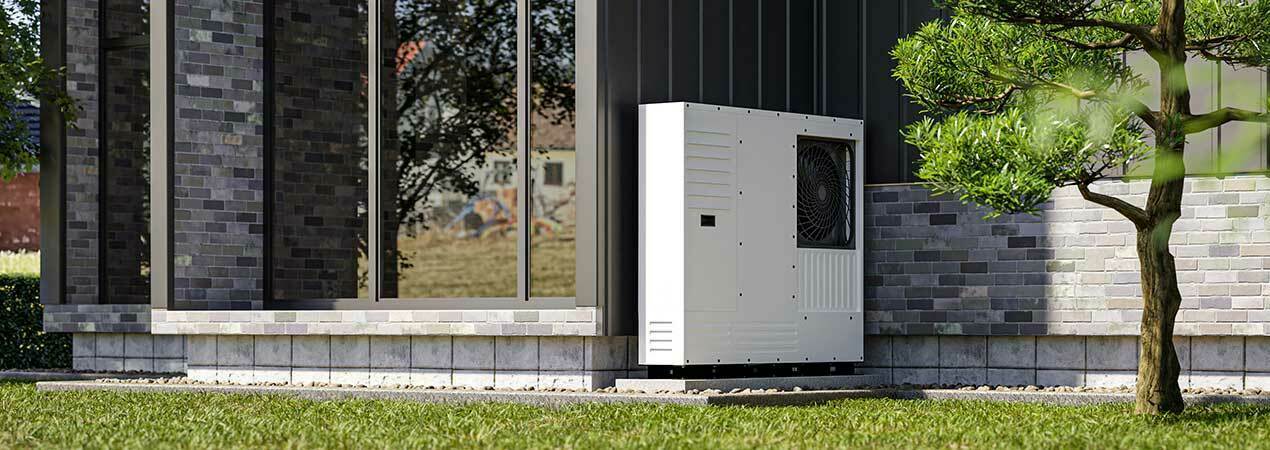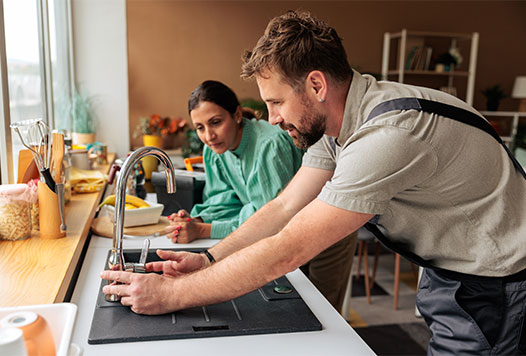How to become a heat pump installer - plus, a 10% training course discount
 In this article
In this article
Money off Heat Geek training courses
We’ve partnered with heat pump installer network Heat Geek to provide Which? Trusted Traders 10% off its Heat Geek Learn monthly subscription, normally £150 plus VAT per month. This gives you access to all Heat Geek training courses - access your Which? Trusted Traders discount here.
Delivered through a flexible digital platform, the training includes the basics of how heat pumps work and the different types as well as more advanced content, such as how to ensure the heat pumps you install run as efficiently as possible. It allows users to learn at their own pace via a variety of learning styles.
Heat Geek has won multiple awards for its training. In 2022 it won the H&V News Training Initiative of the Year. Its most recent award was 2024 Training Provider of the Year at the National ACR & Heat Pump Awards.
Why should you consider becoming a heat pump installer?
Given the push in recent years towards greener energy solutions, there really has never been a better time than now to think about becoming a heat pump installer.
A number of the UK’s biggest mortgage lenders are offering cashback to their customers to help them pay for green home improvements such as installing a heat pump. The Boiler Upgrade Scheme can also help people in England and Wales with the cost of replacing their fossil fuel heating system with a heat pump.
Heat pump installations had a record-breaking year in 2024 with almost 60,000 certified installations in UK homes and small businesses, according to data from the Microgeneration Certification Scheme (MCS). This was 43% more than in 2023.
The number of installers has also grown. There were more than 2,000 MCS-certified installers in 2024, with 387 of these becoming certified during 2024.
In 2024, 9,062 people trained to install heat pumps according to the Heat Pump Association. There were 2,209 in the first quarter of 2025 alone.
The Climate Change Committee has set a target of 450,000 heat pump installations per year by 2030 and 1.5 million by 2035. However, in 2023, there were only 60,000 installed. At that rate of installation, it would take over 400 years for every one of today’s existing homes to be fitted with one – not counting the new homes that would be built in the meantime.
This means a larger number of heat pump installers is required to get the job done on time. The Heat Pump Association estimates that an average of 10,267 people will need to complete a heat pump training course every year to meet the previous government targets of 600,000 installations per year by 2028 and 1.6 million by 2035.
As Kevin Wellman of the Chartered Institute of Plumbing and Heating Engineering (CIPHE) notes: ‘This is a great time to specialise in energy-saving products and net zero issues.’
‘There are some jobs that are here today, gone tomorrow, but a vocation in the plumbing and heating industry can be a job for life,’ he continues. ‘Apprenticeships have been undervalued for far too long. You can’t change the world today – we need the infrastructure to support the efforts.’
What qualifications do I need to become a heat pump installer?
When it comes to the qualifications required to become a heat pump installer, the good news is that, if you’re already trained as a heating engineer, then you already have most of the skills required to do the job.
However, if you’re not yet trained in any form of heating installation, you should look to invest in a course such as the following or join an apprenticeship scheme:
- Level 2 Diploma in Plumbing and Heating
- Level 3 Diploma in Plumbing and Heating
- Level 3 Diploma in Gas Utilisation Installation and Maintenance
- T Level in Building Services Engineering for Construction
Once you have the required heating skills needed to be a heating engineer, you can then train to install heat pumps correctly.
How long does it take to train to become a heat pump installer?
The amount of time it takes to train to install heat pumps correctly will vary depending on your current skill level. Those already trained in heating engineering can learn the required skills in a matter of weeks, while those new to the trade could find themselves training for a minimum of several months.
According to the Heat Pump Association, trained heating installers can gain the knowledge they need to install a heat pump by taking a two-day heat pump foundation course, which provides an overview of heat pumps, installation guidelines, commissioning, servicing and end-user handover.
Following successful completion of the foundation course, installers can then gain a deeper understanding of each type of heat pump technology through an additional one-day course offered on air-source and ground-source heat pumps, including hybrids.
Installers may also want to complete the Chartered Institute of Plumbing and Heating Engineering (CIPHE) low-temperature qualification, which aims to upskill heating engineers to design and install low-temperature heating and hot water systems. These use less energy overall and can be used with heat pumps.
When it comes to the CIPHE qualification in particular, Kevin of CIPHE points out:
'The lower temperature side of heat pumps is a different phenomenon for installers and designers to grasp. I am advising that this qualification be made available to any qualified, experienced installer regardless of their affiliation to CIPHE, because in order to resolve this problem of a shortage of skilled people, we need as many people upskilled as possible.'
If you’re already a heating engineer, you may be able to get £500 towards the cost of heat pump training through the government’s Heat Training Grant. This was recently extended to March 2026.
Are there any differences between qualifications for air and ground-source heat pumps?
Yes, there are differences in the qualifications required to install air-source heat pumps compared to ground-source heat pumps – this is because ground-source heat pumps have a slightly more complex installation process.
When training, all heat pump courses typically start with a focus on air-source heat pumps. However, once you’ve completed this standard level of training, you can then take an additional course around ground-source heat pump installation, which will give you the necessary skills required to make a safe installation.
Become a Trusted Trader
When customers see you displaying our logo, they'll know you're a trader they can trust
Find out more




